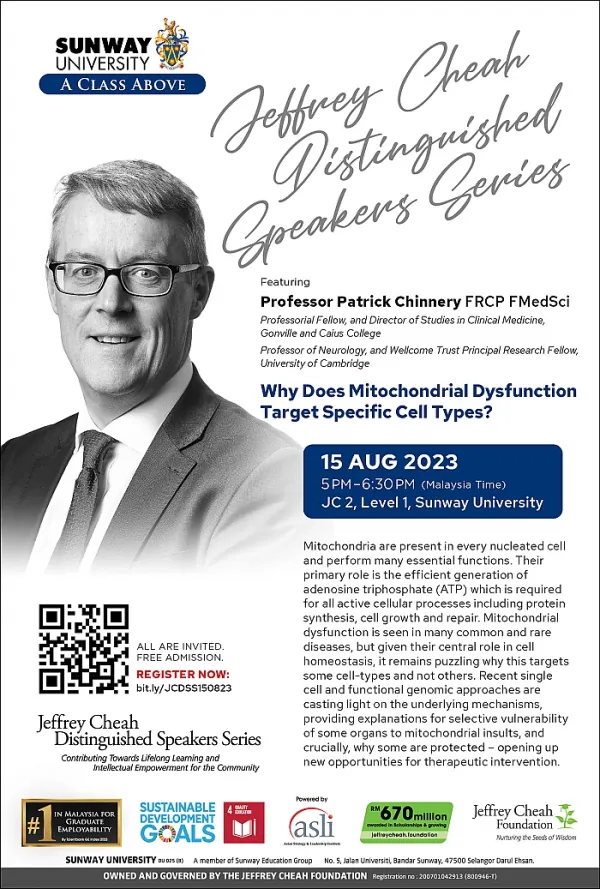Why Does Mitochondrial Dysfunction Target Specific Cell Types?
Mitochondria are present in every nucleated cell and perform many essential functions. Their primary role is the efficient generation of adenosine triphosphate (ATP) which is required for all active cellular processes including protein synthesis, cell growth and repair. Mitochondrial dysfunction is seen in many common and rare diseases, but given their central role in cell homeostasis, it remains puzzling why this targets some cell-types and not others. Recent single cell and functional genomic approaches are casting light on the underlying mechanisms, providing explanations for selective vulnerability of some organs to mitochondrial insults, and crucially, why some are protected - opening up new opportunities for therapeutic intervention.
Speaker:
Professor Patrick Chinnery FRCP FMedSci
Professorial Fellow, and Director of Studies in Clinical Medicine,
Gonville and Caius College
Professor of Neurology, and Wellcome Trust Principal Research Fellow,
University of Cambridge






